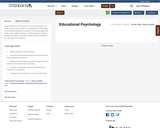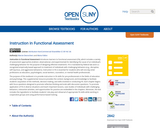Six case studies, case study keys, and instructor notes were developed for this grant project. A brief description of the studies is as follows:
Blood Clotting- This case study discusses the causes, symptoms, and possible treatments for blood clots. I chose this study because the story is about my brother who was misdiagnosed with a clot and almost died. I felt it was a study that included the importance of proper diagnosis in a medical situation.
Immunization-This case study includes a brief history of immunization, how vaccines work, what type of vaccines are available, what chemicals can be found in vaccines, and why people may choose not to be vaccinated. This study was written before the COVID-19 pandemic, but more information can be added to it concerning a possible vaccination for the COVID-19 virus.
The Stereochemistry of Ephedrine- This case study centers around the drug ephedrine. The study discusses how ephedrine binds to adrenergic receptors. Ephedrine is a chiral molecule which means it has stereoisomers. This study focuses on stereochemistry and guides students on how stereoisomers bind to specific receptors. The way an isomer binds to a receptor affects how a drug interacts with our body.
Understanding Solutions- This case study connects the concepts of concentration and molarity in chemistry terms to terms used in a medical field. Students will study the concepts of osmolarity, molarity, hyper and hypotonic solutions, and salt solutions. The study involves the story of a young nurse learning to understand the important terms and solutions in a medical situation.
Red Blood Cell Alloimmunization- This case study discusses the differences of blood types and blood type groups (ABO and Rh). The study focuses on the possibility of complications due to allergic reactions to red blood cell antigens (alloimmunization). Alloimmunization is especially harmful for patients needing blood transfusions or women and fetuses during pregnancy.
Radioactivity- This case study discusses thyroid hormones and how problems with these hormones can be treated with radiation. Students learn about the function of the thyroid and causes of hypo and hyperthyroidism. Students also learn about radioactive treatment, half lives of radiation, and types of radiation.
















